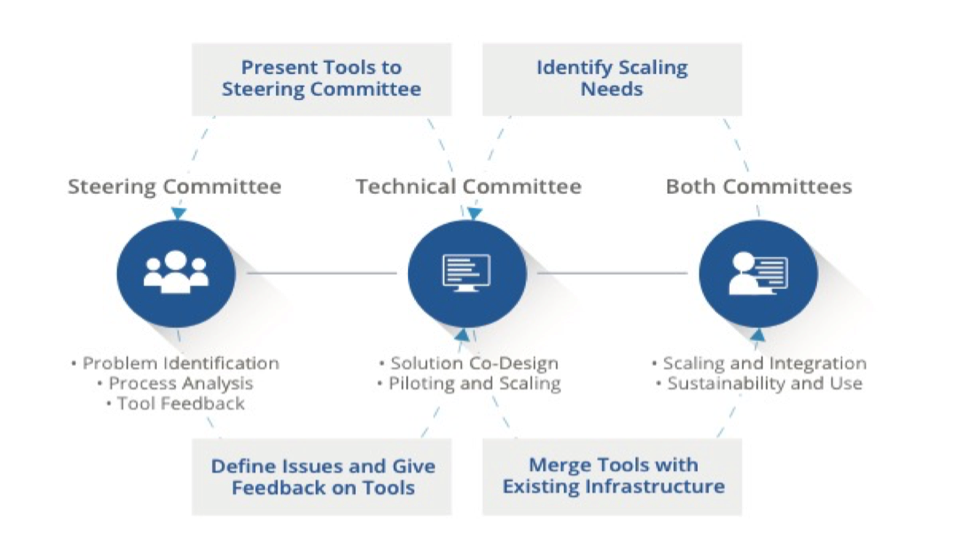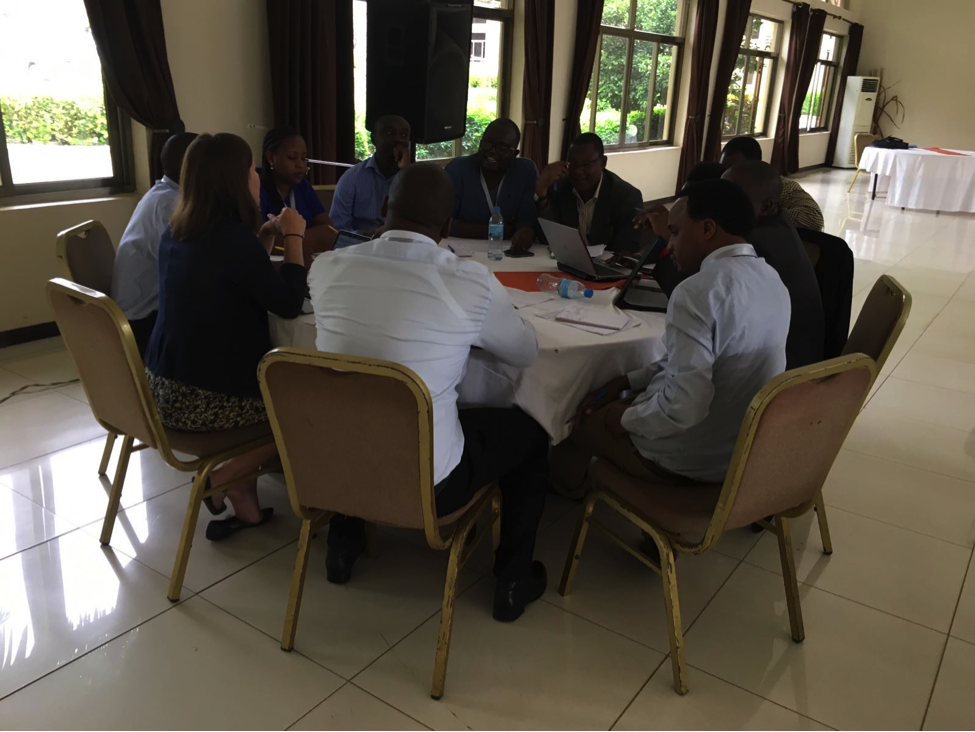Define and Co-Design: Promoting Health Data Use in Tanzania
Earlier this month, the Results Data Initiative (RDI) program reached an important milestone by convening our first cross-ministry co-design workshop with 24 officials across the Government of Tanzania. Our goal? Put data to use for decision-making in health.
At this meeting, we put our problem-driven, iterative, and adaptive (PDIA) approach into motion — facilitating discussions around key problems and decisions for which data could be used, and potential data sources and tool designs to meet these needs. To facilitate learning across the various government ministries and roles, we worked with Results for Development (R4D) to adapt its Joint Learning Network methodology. This new approach enabled us to leverage knowledge, capacity, and data from across ministries to design more holistic, needs-based solutions.
Government participants discussing challenges to data use in Tanzania
This co-design workshop followed 18 months of in-depth qualitative research, during which more than 500 data producers and users were interviewed to understand their challenges collecting, managing, sharing, and using results data. The workshop brought together senior-level decision-makers (the Steering Committee) and their technical staff (the Technical Committee) for a process of problem identification and prioritization. The Technical Committee participants then spent a second day identifying relevant and existing information sources and outlining the functionalities and requirements of the information solutions we will co-develop to address their priority decisions.

Workshop Day 1 Outcome: Government Priorities
During day 1, Steering and Technical Committee participants agreed on two initial facility- and community-level planning questions:
-
How do we best present relevant, community-level health data to Council Health Management Teams to improve their understanding of and response to common causes of death?
-
How do we best present relevant, facility-level health data to Facility Planning Teams to interpret, prioritize, and respond to the diseases in their catchment and service area?
Workshop Day 2 Outcome: Co-Creation Work Plans
On day 2, the Technical Committee developed clear work plans to build out information products that address the two priority data use cases. The Technical Committee, with support from DG and DVI’s team of software developers and data analysts, have already begun work to develop these tools, which will be presented back to the Steering Committee for feedback at the next quarterly co-design workshop in September.

Breakout groups developing work plans to co-create tools for data use
Stay tuned for a series of posts that dive deeper into RDI’s cross-ministerial and PDIA approach, as we continue to co-create tools for data use in Tanzania and Malawi.
This workshop — the first of a series of quarterly co-design workshops planned over the next 18 months — was chaired by the President’s Office of Regional and Local Government (PORALG). The two-day workshop in Morogoro brought together government officials from PORALG, the Ministry of Health and Social Welfare, district and regional medical offices in Lindi and Singida regions, the Ministry of Finance and Planning, and the National Bureau of Statistics. DataVision International (DVI), a Tanzanian data and technology firm, facilitated the workshop with the support of DG and R4D.
Share This Post
Related from our library

Harnessing the Power of Data: Tackling Tobacco Industry Influence in Africa
Reliable, accessible data is essential for effective tobacco control, enabling policymakers to implement stronger, evidence-based responses to evolving industry tactics and public health challenges. This blog explores how Tobacco Industry strategies hinder effective Tobacco control in Africa, and highlights how stakeholders are harnessing TCDI Data to counter industry interference.

Building a Sustainable Cashew Sector in West Africa Through Data and Collaboration
Cashew-IN project came to an end in August 2024 after four years of working with government agencies, producers, traders, processors, and development partners in the five implementing countries to co-create an online tool aimed to inform, support, promote, and strengthen Africa’s cashew industry. This blog outlines some of the key project highlights, including some of the challenges we faced, lessons learned, success stories, and identified opportunities for a more competitive cashew sector in West Africa.

Digital Transformation for Public Value: Development Gateway’s Insights from Agriculture & Open Contracting
In today’s fast-evolving world, governments and public organizations are under more pressure than ever before to deliver efficient, transparent services that align with public expectations. In this blog, we delve into the key concepts behind digital transformation and how it can enhance public value by promoting transparency, informing policy, and supporting evidence-based decision-making.